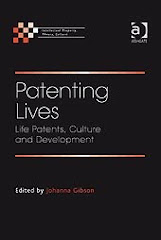
The German chemical and drugs company, Bayer, is to face claims by US rice farmers that Bayer CropScience's GM rice has contaminated valuable crops.
Although unavailable for comment earlier this week, Bayer has finally confirmed that US rice farmers have filed a lawsuit alleging that the company had failed to prevent its GM rice contaminating other crops, according to a report in The Times newspaper today. In a statement by the plaintiffs' law firm, Cohen, Milstein, Hausfeld & Toll, it was confirmed that the class action was filed this week (Monday) in the US District Court for the Eastern District of Arkansas in Little Rock. The firm's website provides a copy of the complaint.
The contamination of rice crops by the untested strain, LLRICE601, has greatly compromised the export value of the rice, a significant export crop with the US rice making up around 12% of the international market.
EU imports are subject to laws restricting GM crops and food including GM rice, for which no varieties are currently authorised for sale in the EU. The EU executive stated that the rice could be blocked after it was informed by US authorities earlier this month that the contamination had been detected. And indeed, last week, 23 August 2006, in a press release the Commission confirmed that certification would now be required for all US rice exports, in order to stop the entry of unauthorised GMO into the EU. As an emergency measure, the adopted decision took effect immediately. However, the decision has been submitted to Member State experts for review within 10 days, and the Standing Committee on the Food Chain and Animal Health conducted an urgent meeting last Friday.

Reuters and the BBC have also reported that Japan, the world's largest importer of US rice, had already suspended imports of US long-grain rice shortly after the contamination became public. According to an earlier report in the Environment New Service (ENS), the contaminating GM variety has not been approved for human consumption.
However, in the statement released by the Food and Drug Administration (FDA), the FDA
 concluded that "the presence of this bioengineered rice variety in the food and feed supply poses no food or feed safety concerns." Agriculture Secretary, Mike Johanns (pictured at right), was quoted by ENS as saying "The US Department of Agriculture and US Food and Drug Administration have been notified by Bayer CropScience t
concluded that "the presence of this bioengineered rice variety in the food and feed supply poses no food or feed safety concerns." Agriculture Secretary, Mike Johanns (pictured at right), was quoted by ENS as saying "The US Department of Agriculture and US Food and Drug Administration have been notified by Bayer CropScience t hat the company has detected trace amounts of regulated genetically engineered rice in samples taken from commercial long grain rice. Both have reviewed the available scientific data and concluded that there are no human health, food safety, or environmental concerns associated with this GE rice." Nevertheless, it seems that there are significant commercial concerns in the "diminished prices for US rice exports" in the farmers' complaint. Nevertheless, the ENS report states that the secretary acknowledged the potential impact on rice exports.
hat the company has detected trace amounts of regulated genetically engineered rice in samples taken from commercial long grain rice. Both have reviewed the available scientific data and concluded that there are no human health, food safety, or environmental concerns associated with this GE rice." Nevertheless, it seems that there are significant commercial concerns in the "diminished prices for US rice exports" in the farmers' complaint. Nevertheless, the ENS report states that the secretary acknowledged the potential impact on rice exports.The lawsuit is a significant development in the context of current concerns over the liability
 of GM producers in organic and traditional markets. In a Friends of the Earth Europe (FoE) press release, campaigner Adrian Bebb stated, "The biotech industry has failed once again to control its experiments."
of GM producers in organic and traditional markets. In a Friends of the Earth Europe (FoE) press release, campaigner Adrian Bebb stated, "The biotech industry has failed once again to control its experiments."



No comments:
Post a Comment